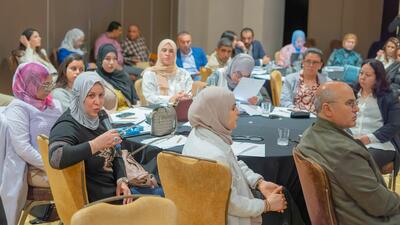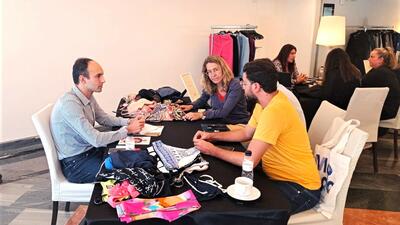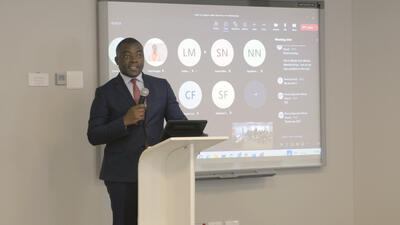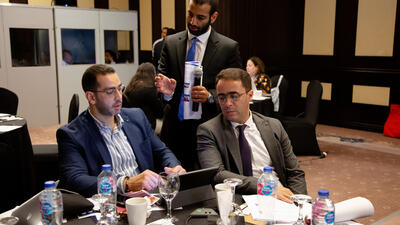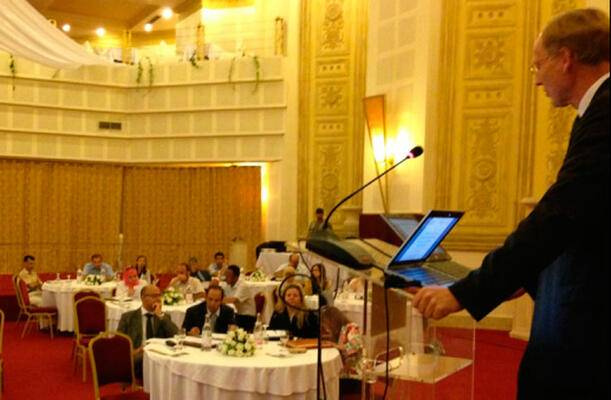
Tunisia announces new regulations to facilitate and promote external trade (en)
Announcement at Tunis NTM workshop, the 20th such workshop the ITC has organized around the world.
Mr. Mohamed
Milli, Director of External Trade at the Ministry of Trade and Handicrafts, presented
upcoming regulations to facilitate and promote external trade at the workshop
highlighting the barriers to trade faced by Tunisian companies.
Organized by the International Trade Centre (ITC) and the Ministry of Trade and
Handicrafts, the workshop took place in Tunis on 2 July 2013. The gathering in
Tunis marks the 20th such workshop about non-tariff measures (NTMs)
that ITC has organized in countries around the world as part of its programme
on NTMs that has
been developed since 2010.
During the past decades, bilateral and multilateral trade agreements have led
to a reduction in tariff-related barriers to global trade. But in the same
period the world has experienced a steady rise in the number of NTMs. Today,
NTMs are among the biggest barriers to international trade. Less visible but
perhaps more complex than tariffs, NTMs span a range of regulations that can
vary by country and by product and which change frequently.
At the Tunis workshop, ITC also presented the results of a 2012 survey of more
than 300 Tunisian exporters and importers. The survey revealed that NTMs
represented an obstacle to trade for the vast majority (80%) of Tunisian
companies that were in the survey. Exporters in the agribusiness sector were
far more affected (89%) than were exporters of manufacturing goods, according to the study.
‘At the ITC we believe that a country must have a holistic vision on policy and on measures that affect the private sector’s capacity to improve its competitiveness,’ said Friedrich von Kirchbach, Director of ITC’s Division of Country Programmes.
‘The results of this survey represent a tool for the public sector and also for the private sector to better understand the challenges that Tunisian businesses must confront.’
The survey revealed, moreover, that the smaller the company, the bigger was the
impact of NTMs: 55% of micro-exporters and small businesses were affected by
NTMs, whereas 52% of middle-sized businesses and 45% of large exporters were
affected, the study revealed. The locality of companies also plays an important
role the perception of NTMs. Exporters in the regions of Nabeul, Sfax and Tunis
seemed indeed less affected that the ones located in Sousse or Monastir.
Whereas the majority of burdensome regulations are applied by partner
countries, in particular European Union members, most of the obstacles are
procedural and occur in Tunisia. The workshop was the opportunity for both the
public and the private sector to debate together those problems and to identify
policy and technical options.
Among the recommendations stemming from the workshop was the need to make information on international and regional standards and on conformity assessment procedures more accessible and transparent. Further evaluation of capacities and infrastructures of Tunisia’s national laboratories was also recommended in order to better meet partner countries’ requirements and to assist exporters with required export procedures.
Underscoring the conclusions of a recent ITC report conducted on behalf of the
League of Arab States, the Tunisian survey indicated that the partner countries
which have the most restrictive NTMs are those with which Tunisia has signed
several trade accords, in particular countries of the Gulf and of North Africa.
The study prepared for the Arab League indicated that eliminating NTMs in the region
would provide a sharp boost to regional trade, currently among the lowest in
the world, and would create up to 2
million jobs.




